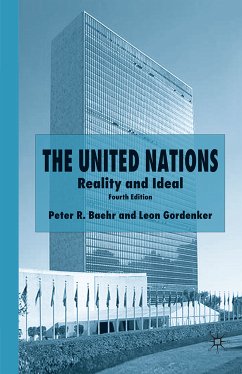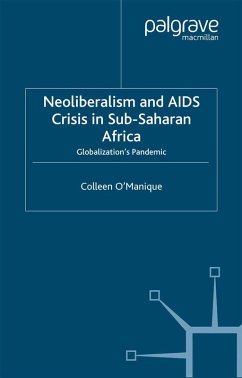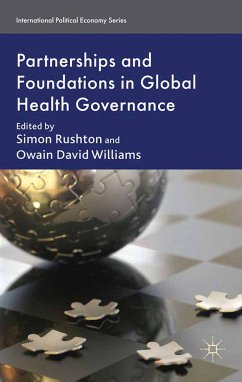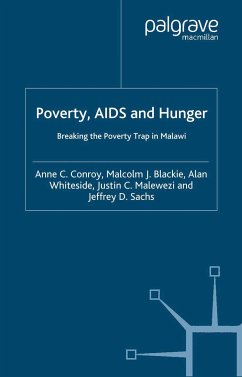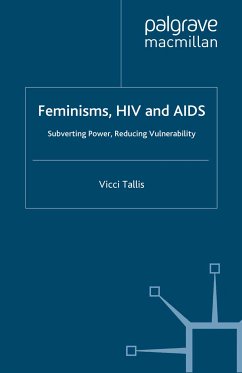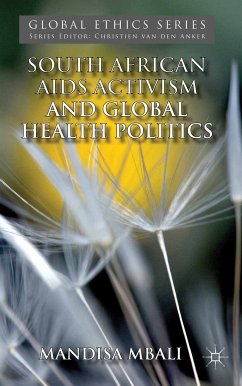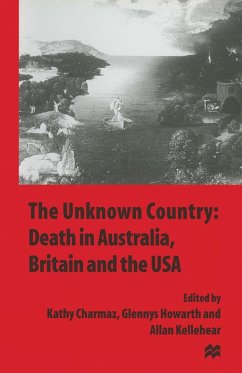38,95 €
38,95 €
inkl. MwSt.
Sofort per Download lieferbar

19 °P sammeln
38,95 €
Als Download kaufen

38,95 €
inkl. MwSt.
Sofort per Download lieferbar

19 °P sammeln
Jetzt verschenken
Alle Infos zum eBook verschenken
38,95 €
inkl. MwSt.
Sofort per Download lieferbar
Alle Infos zum eBook verschenken

19 °P sammeln
- Format: PDF
- Merkliste
- Auf die Merkliste
- Bewerten Bewerten
- Teilen
- Produkt teilen
- Produkterinnerung
- Produkterinnerung

Bitte loggen Sie sich zunächst in Ihr Kundenkonto ein oder registrieren Sie sich bei
bücher.de, um das eBook-Abo tolino select nutzen zu können.
Hier können Sie sich einloggen
Hier können Sie sich einloggen
Sie sind bereits eingeloggt. Klicken Sie auf 2. tolino select Abo, um fortzufahren.

Bitte loggen Sie sich zunächst in Ihr Kundenkonto ein oder registrieren Sie sich bei bücher.de, um das eBook-Abo tolino select nutzen zu können.
Attempts to explain the United Nation's first 45 years. It sets out the fundamental features of the structure of the United Nations and traces the political developments around such topics as maintaining international peace, protecting human rights and improving economic welfare.
- Geräte: PC
- ohne Kopierschutz
- eBook Hilfe
- Größe: 18.38MB
Andere Kunden interessierten sich auch für
![The United Nations (eBook, PDF) The United Nations (eBook, PDF)]() P. BaehrThe United Nations (eBook, PDF)40,95 €
P. BaehrThe United Nations (eBook, PDF)40,95 €![Neo-liberalism and AIDS Crisis in Sub-Saharan Africa (eBook, PDF) Neo-liberalism and AIDS Crisis in Sub-Saharan Africa (eBook, PDF)]() C. O'ManiqueNeo-liberalism and AIDS Crisis in Sub-Saharan Africa (eBook, PDF)40,95 €
C. O'ManiqueNeo-liberalism and AIDS Crisis in Sub-Saharan Africa (eBook, PDF)40,95 €![Partnerships and Foundations in Global Health Governance (eBook, PDF) Partnerships and Foundations in Global Health Governance (eBook, PDF)]() Partnerships and Foundations in Global Health Governance (eBook, PDF)40,95 €
Partnerships and Foundations in Global Health Governance (eBook, PDF)40,95 €![Poverty, AIDS and Hunger (eBook, PDF) Poverty, AIDS and Hunger (eBook, PDF)]() A. ConroyPoverty, AIDS and Hunger (eBook, PDF)40,95 €
A. ConroyPoverty, AIDS and Hunger (eBook, PDF)40,95 €![Feminisms, HIV and AIDS (eBook, PDF) Feminisms, HIV and AIDS (eBook, PDF)]() V. TallisFeminisms, HIV and AIDS (eBook, PDF)40,95 €
V. TallisFeminisms, HIV and AIDS (eBook, PDF)40,95 €![South African AIDS Activism and Global Health Politics (eBook, PDF) South African AIDS Activism and Global Health Politics (eBook, PDF)]() M. MbaliSouth African AIDS Activism and Global Health Politics (eBook, PDF)40,95 €
M. MbaliSouth African AIDS Activism and Global Health Politics (eBook, PDF)40,95 €![The Unknown Country: Death in Australia, Britain and the USA (eBook, PDF) The Unknown Country: Death in Australia, Britain and the USA (eBook, PDF)]() The Unknown Country: Death in Australia, Britain and the USA (eBook, PDF)73,95 €
The Unknown Country: Death in Australia, Britain and the USA (eBook, PDF)73,95 €-
-
-
Attempts to explain the United Nation's first 45 years. It sets out the fundamental features of the structure of the United Nations and traces the political developments around such topics as maintaining international peace, protecting human rights and improving economic welfare.
Dieser Download kann aus rechtlichen Gründen nur mit Rechnungsadresse in A, B, BG, CY, CZ, D, DK, EW, E, FIN, F, GR, HR, H, IRL, I, LT, L, LR, M, NL, PL, P, R, S, SLO, SK ausgeliefert werden.
Produktdetails
- Produktdetails
- Verlag: Palgrave Macmillan UK
- Seitenzahl: 202
- Erscheinungstermin: 18. Juni 1992
- Englisch
- ISBN-13: 9781349111084
- Artikelnr.: 45967505
- Verlag: Palgrave Macmillan UK
- Seitenzahl: 202
- Erscheinungstermin: 18. Juni 1992
- Englisch
- ISBN-13: 9781349111084
- Artikelnr.: 45967505
- Herstellerkennzeichnung Die Herstellerinformationen sind derzeit nicht verfügbar.
Introduction - independent states, interdependent societies, international law, reforming world politics, conferences and decisions, functional co-operation in the 19th century, the concert of Europe, the Hague peace conferences, the league of nations, the Second World War and the UN, the San Francisco conference; charter and structure of the United Nations - close relatives, the general assembly, the security council, the economic and social council, the trusteeship council, the international court of justice, the secretariat, cluster of UN agencies, organizational tension; membership and decision-making - Chinese representation, divided states, Switzerland and neutrality, ministates, weighted voting, decision-making processes, fundamental changes, change of attitude of the Soviet Union, voting groups, groups and voting positions, the political significance of resolutions, slow decision-making, finances; the maintenance of peace and security - coercive measures to maintain peace, Korea "Uniting For Peace", the UN peace-keeping force, the UN emergency force, other peace-keeping cases, negotiations and conciliatory methods, limits and potentials of peace-keeping, arms control and disarmament, conclusions; human rights - the universal declaration of human rights, the international covenants on human rights, other human rights activities, apartheid, conclusions; from colonialism to independence - declaration on non-self-governing territories, the trusteeship system, declaration on granting of indepenence, the special committee on decolonization, Namibia, the imposition of economic sanctions, remaining colonial issues, conclusions; co-operation for economic and social progress - global conferences, economic and social data, economic development and reduction of poverty, technical assistance, UN population fund, UN capital developemnt fund (UNCDF), UN volunteers, UN chilren's fund (UNICEF), UN conference on trade and development, new international economic order, the global environment, refugees and disasters, narcotics drug control, AIDS, conventional economic, social and cultural co-operation; conclusion - realities and ideals - the Soviet Union, the five policemen, the Third World, the United States, collective legitimization, the secretary-general, the specialized agencies, the UN in the 1990s.
Introduction - independent states, interdependent societies, international law, reforming world politics, conferences and decisions, functional co-operation in the 19th century, the concert of Europe, the Hague peace conferences, the league of nations, the Second World War and the UN, the San Francisco conference; charter and structure of the United Nations - close relatives, the general assembly, the security council, the economic and social council, the trusteeship council, the international court of justice, the secretariat, cluster of UN agencies, organizational tension; membership and decision-making - Chinese representation, divided states, Switzerland and neutrality, ministates, weighted voting, decision-making processes, fundamental changes, change of attitude of the Soviet Union, voting groups, groups and voting positions, the political significance of resolutions, slow decision-making, finances; the maintenance of peace and security - coercive measures to maintain peace, Korea "Uniting For Peace", the UN peace-keeping force, the UN emergency force, other peace-keeping cases, negotiations and conciliatory methods, limits and potentials of peace-keeping, arms control and disarmament, conclusions; human rights - the universal declaration of human rights, the international covenants on human rights, other human rights activities, apartheid, conclusions; from colonialism to independence - declaration on non-self-governing territories, the trusteeship system, declaration on granting of indepenence, the special committee on decolonization, Namibia, the imposition of economic sanctions, remaining colonial issues, conclusions; co-operation for economic and social progress - global conferences, economic and social data, economic development and reduction of poverty, technical assistance, UN population fund, UN capital developemnt fund (UNCDF), UN volunteers, UN chilren's fund (UNICEF), UN conference on trade and development, new international economic order, the global environment, refugees and disasters, narcotics drug control, AIDS, conventional economic, social and cultural co-operation; conclusion - realities and ideals - the Soviet Union, the five policemen, the Third World, the United States, collective legitimization, the secretary-general, the specialized agencies, the UN in the 1990s.

